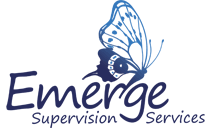Professional Supervision provides a safe space to be human.
How safe do you feel revealing your work challenges to your colleagues or managers? It can feel very vulnerable admitting when we are unsure of the next step to take with a client’s rehab, or questioning a choice we have made, or disappointed about an outcome and wondering if we should have taken a different action. It can even be hard to admit we find a client hard to get on with, intimidating or annoying. Hard to acknowledge those “less than professional thoughts” about a client, colleague, or even our manager. Some workplaces have a great supportive atmosphere and open communication, but even so, admitting your mistakes or concerns to a manager who also makes decisions on your performance or even salary can be a real challenge.
Professional supervision provides a confidential space to look at those aspects of our work performance (and our humanness) we may not feel safe exploring with our colleagues/managers/friends. This is because a strong, mutually respectful supervision relationship allows for vulnerability. Sometimes it can be uncomfortable and disconcerting to explore our challenges with our work and I often wonder if that potential for being vulnerable is a reason why some practitioners avoid participating in supervision.
Yet in my experience, those who effectively and regularly use supervision as a means for their own professional growth become even better clinicians, therapists, or social service providers as a result. Just as important they are more resilient and less likely to burn out or leave the workforce.
If you are interested in learning more about how professional supervision can support your practice with a safe space to be human, and a proactive plan for your next steps with your client you can contact me here…



